How to explain to your children what artificial intelligence is?
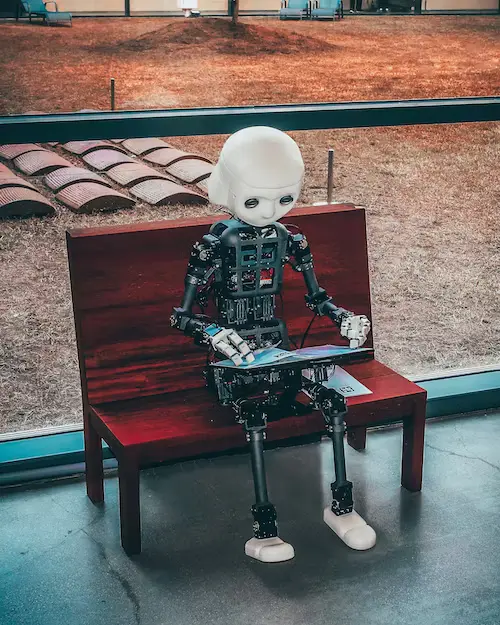
In the age of modern technology, artificial intelligence (AI) has become a popular and interesting term. Our children are exposed to this concept through smart devices, robots and applications that they use in their daily lives. So, it becomes necessary to explain to them what exactly AI is and how it affects our world. In this article, we will explore how to explain the concept of AI to your children in creative and interesting ways.
Show key points
- Artificial intelligence is a technology that simulates human intelligence and thinking, enabling machines to learn, adapt, and solve problems on their own.
- AI is already an integral part of daily life, appearing in smartphones, medical diagnosis systems, autonomous vehicles, and personalized online services.
- Children can better understand AI through relatable stories, movies, and books that present complex ideas in engaging and age-appropriate ways.
- ADVERTISEMENT
- Hands-on activities like building robots, playing logic games, and exploring virtual simulations help children grasp AI concepts through interactive learning.
- Teaching kids about AI not only builds technical skills but also enhances their problem-solving, analytical thinking, and creativity.
- Developing an understanding of AI prepares children for future job markets and empowers them to contribute ethically and innovatively to society.
- Encouraging children to explore AI nurtures responsible future leaders capable of harnessing technology to solve real-world challenges.
1. What is AI and how does it work?
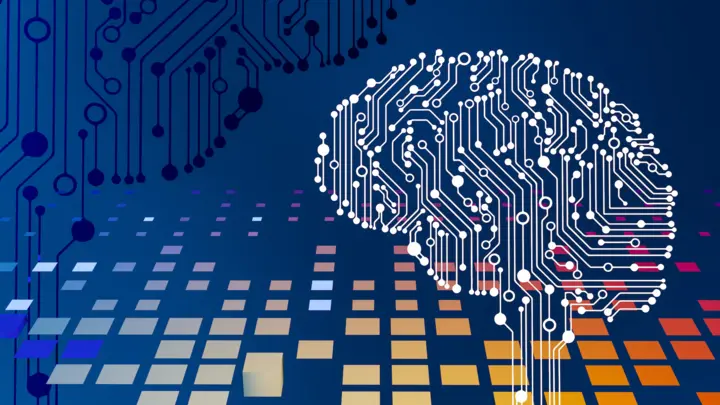
Daily life is characterized by rapid technological innovations, and the key to this development lies in the concept of artificial intelligence. Artificial intelligence is a field concerned with creating hardware and software capable of simulating intelligence and human thinking. Can you imagine a robot having the ability to make independent decisions and solve problems?
Recommend
Artificial intelligence relies on data and information collected and analyzed by computers and other devices. When an AI system receives data, it uses complex algorithms to process that data, extract knowledge, and predict outcomes. Simply put, we can think of AI as a "robotic brain" that learns and adapts to analyze and understand data.
The exciting concept about artificial intelligence is that it can perform tasks that were once considered exclusively for humans. Through the use of techniques such as deep learning, big data analysis, and machine learning, the AI system can learn and become more efficient over time. It can also improve the performance of repetitive, boring, and exhausting tasks for humans.
Interestingly, AI can evolve and learn by interacting with the environment and experiences. An AI system can learn from errors and adapt to variables. This opens the door to endless possibilities in areas such as medicine, self-driving cars and intelligent robotics.
In short, AI is just a technological tool capable of data processing and simulating human intelligence and thinking. But this technology has huge potential to improve our lives and facilitate many tasks. Let's prepare for a future where AI becomes an integral part of our daily lives.
2. Artificial intelligence in our daily lives.
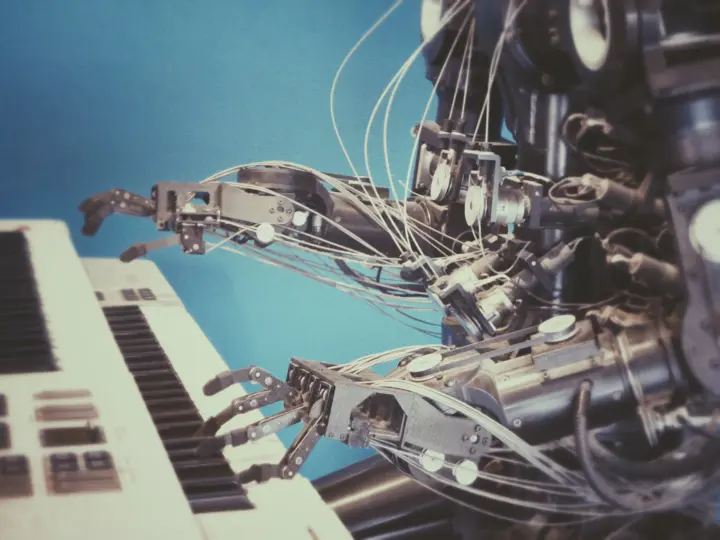
When we talk about artificial intelligence, we are talking about a technology that mimics the mental abilities that characterize humans. It is not surprising that artificial intelligence has a significant impact on our daily lives, as we can see its new and innovative applications in different fields. Here are some examples of how AI affects our daily lives:
1. Smartphones: Smartphones are widely used AI devices. It relies on artificial intelligence technologies such as face and voice recognition and provides interpretation features and smart recommendations.
2. Home robots: Intelligent home robots help perform daily tasks such as cleaning floors and organizing the house. They are able to analyze their environment, make appropriate decisions and adapt to different conditions.
3. Autonomous cars: Autonomous cars are one of the most prominent modern applications of artificial intelligence. Voice and image recognition and navigation technologies are used to analyze ambient data and make sound decisions to drive safely.
4. Health services: Artificial intelligence is used in the medical field to diagnose diseases and recommend the best treatments. It helps analyze big data, detect patterns, and come up with an accurate diagnosis more quickly.
5. E-commerce: Commercial companies use artificial intelligence to analyze consumer behavior and provide ads and offers that are appropriate for each individual. It improves the online shopping experience and contributes to increased productivity and profitability.
In short, AI is emerging in our daily lives in countless ways and is an innovative technology that is changing the way we think and interact with the world around us. Therefore, we must enhance our children's understanding of this concept and guide them to make the best use of it and develop it in the future.
3. Stories, movies and books that explain artificial intelligence to children.
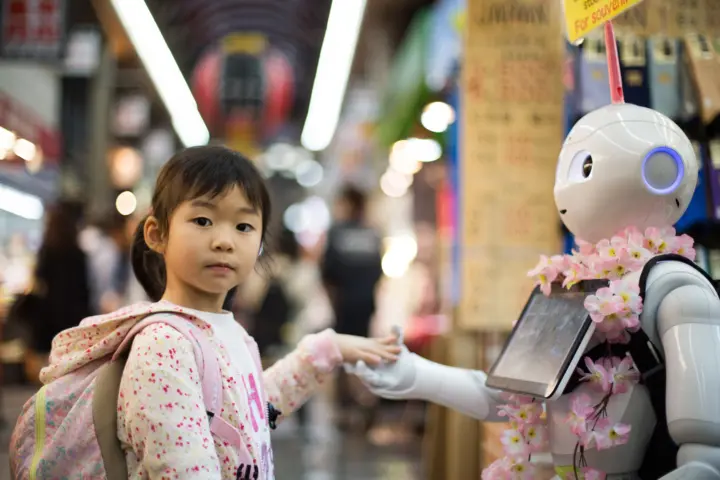
Stories, movies and books are excellent means of explaining complex concepts to children in a creative and interesting way. When it comes to AI, there are many great works that explain this concept in ways that suit children and provide them with a deeper understanding of the field. Here are some stories, movies and books that help you explain AI to your children in a creative way:
1. The book "Super Intelligent Dinner Robot" by John Sinnott.
- This book tells the story of a child who discovers an intelligent robot who learns through his experiences and interactions. The book provides a simplified explanation of artificial intelligence and how it helps the robot learn skills and interact with the world around it.
2. The film "Robot and the True Tale".
- This film tells the story of a robot who discovers his intelligence abilities and begins to explore the world around him. The film teaches children that artificial intelligence can be able to learn and develop over time.
3. "Artificial Intelligence for Children: Stories of Artificial Intelligence in a Simplified Style" by Richard Robb.
- This book offers exciting stories about robots and smart computers and how they learn and interact with the world. The book helps children understand AI in an easy and fun way.
4. The film "Snow Eyes".
- This animated film tells the story of a robot who lives in a world where robots operate independently and intelligently. The film explores the concept of artificial intelligence and its impact on society.
5. "Jimmy Neutron: Robot Friend" book series by Dan Streitz.
- This series tells the story of Jamie Neutron, a child genius who uses his intelligence to build and control robots. This series can boost children's interest in AI and inspire them to discover their talents in the field.
Through the use of these stories, movies and books, you can spark your children's curiosity and share them on a fun journey to explore and interact with AI in a creative and entertaining way.
4. Games and practical experiments to explore artificial intelligence.
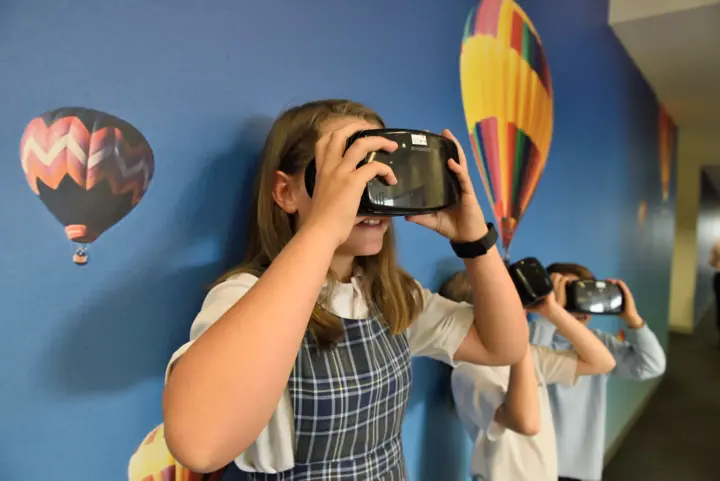
In a rapidly evolving world, games and hands-on experiences are an effective and creative way to explore and understand children's AI. These games and experiences are not only entertaining, but also provide an opportunity to learn and develop their skills in this exciting field. Here are some creative ideas for games and hands-on experiments to explore AI with your kids:
1. Learning by experience: Use play as a way to teach children about artificial intelligence. You can create simulation scenarios that involve trying children to program robots or train them to solve complex problems. This game encourages children to think creatively and develop their programming skills.
2. Robotics Design Experience: Give your kids a chance to design and build small robots using the different building kits available in the market. They will learn about design, engineering and programming during the robot building experience, and will discover how these robots interact with the surrounding environment.
3. Skill Check Game: Create a game with various challenges that you need AI skills to overcome. For example, you can use a program or app that displays puzzles or problems that need AI algorithms to solve. Children will feel challenged and oversee the development of their mental abilities.
4. Virtual reality experience: Use virtual reality technology to create interactive experiences that enable children to explore AI applications in a variety of fields, such as medicine, science, and design. They will learn about how to use those apps and how they affect our daily lives.
5. Cooperative learning game: Organize a group game that involves children collaborating to create a model or solve a problem in which artificial intelligence techniques are used. This game will enhance teamwork skills and creative thinking and enhance their understanding of how AI works in a collaborative environment.
Through innovative experiences and games, we can encourage children to understand AI and how to apply it in our evolving world. The more tangible opportunities they have to play and explore, the more opportunities they have to develop their skills and innovations in this exciting field.
5. The importance of learning and developing artificial intelligence in the future.
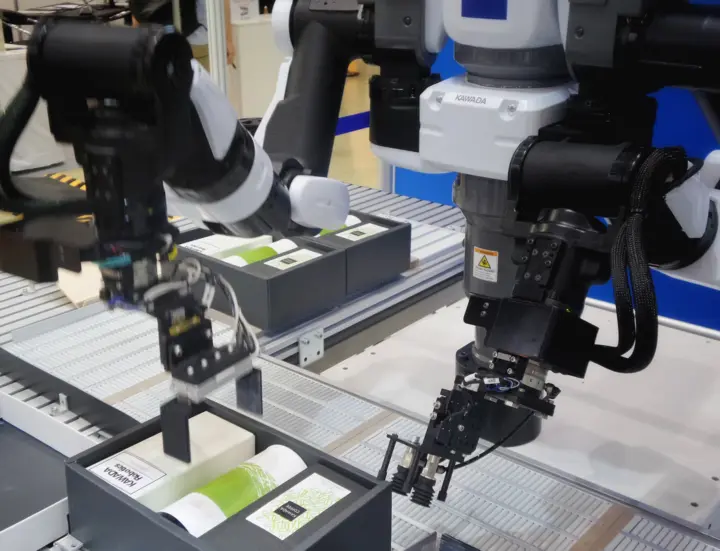
Gaining knowledge and understanding about artificial intelligence has become indispensable in a technologically evolving world. Here are some creative reasons why AI learning and development are important in the future:
1. Job opportunities: The demand for professionals specializing in artificial intelligence is expected to increase as technology develops, meaning that children who acquire knowledge and skills in this field will have extensive job opportunities in the future.
2. Analytical thinking and creativity: Learning AI enhances children's ability to think analytically and extract patterns from data. This helps them develop creative problem solving skills and deep information analysis.
3. Sustainable technology development: Artificial intelligence is one of the main tools for sustainable technology development, which works to solve global challenges such as climate change and resource scarcity. By learning AI, children can be part of future solutions to these problems.
4. Understand social and ethical impacts: Learning AI helps children understand the social and ethical impacts of technology. By developing their skills in the field, they can design and use technology in ways that are of public benefit and avoid negative impacts.
5. Innovation and entrepreneurship: AI can be a source of innovation and entrepreneurship. Children interested in AI development can make their way into the world of innovation by creating programs and apps that benefit the world.
In the end, learning AI is not just about gaining knowledge, it is an investment in the future of our children and their participation in building a better and more sustainable technological world. Let us encourage them to explore this exciting field and develop their abilities in creative and fun ways.
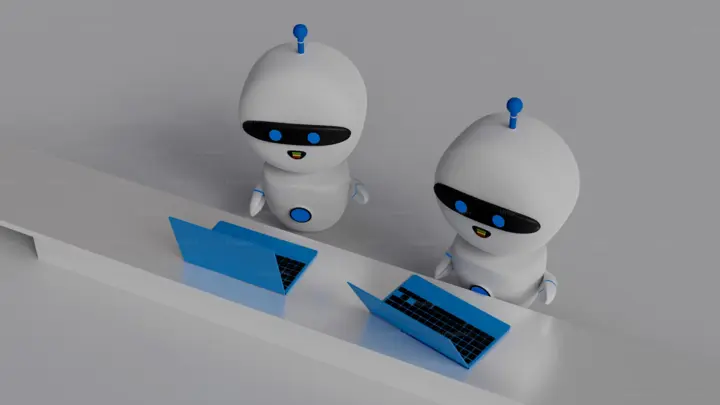
In a world full of advanced technology, understanding AI is crucial for our children. By explaining the concept of AI in creative and interesting ways, we can expose our children to a future full of amazing opportunities and challenges. So, let us work together to strengthen their understanding of this concept and strengthen their desire to explore and develop it for their own benefit and the benefit of society.








